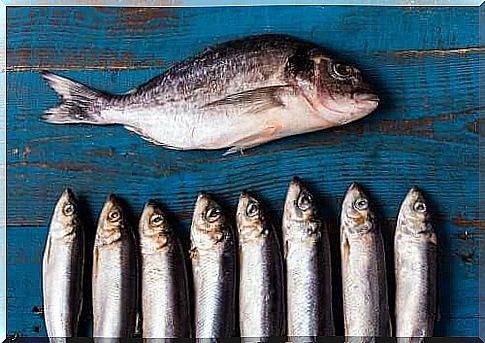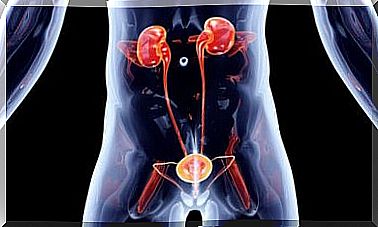Interesting Facts About Oily Fish And Its Health Benefits
Do you know which types of fish have a particularly high fat content and therefore many health benefits? Find out more about this topic today.

Fish is very healthy, so it is usually recommended to enjoy a fish dish two to three times a week. But which fish species are particularly recommended? Find out all you need to know about oily fish and its many health benefits in this article .
Why is fish so healthy?
Fish provides many important nutrients: it is rich in high-quality protein and amino acids that keep our body tissues and organs healthy. It also provides omega-3 fatty acids that help reduce bad cholesterol and high blood pressure.
In general, fish contains minerals such as calcium, potassium, iodine, phosphorus, magnesium and zinc, as well as vitamins A, B6, B12, D and E. Different types of fish are classified differently, with basically two types: lean or white fish and blue or oily fish. It is advisable to alternate between the two to three weekly servings with the different varieties.
Oily fish or blue fish

In contrast to white fish, oily fish contains between 8 and 15% fat, which is mainly polyunsaturated fatty acids. Therefore, these types of fish are more filling than white fish. But why do we speak of “blue” fish? Quite simply: These types of fish can be recognized by their blue skin.
We will then discover different oily fish and their health benefits together so that you can see for yourself how important these are in the weekly nutrition plan for the whole family!
Different types of oily fish
You keep hearing about white and blue fish, but do you know which types of fish belong to which group? We have put together a list for you, which also shows the most important nutrients of the respective fatty fish.
- Tuna: It provides around 300 kcal per 100 g. This fish is characterized by high biological quality protein, minerals and vitamins.
- Sardines: 200 g cover the recommended daily requirement for omega-3 fatty acids. In addition, sardines are also rich in vitamin D and B group vitamins.
- Mackerel: 200 g of this fish provide 40% of the recommended daily amount of phosphorus. They also contain more than the recommended daily dose of vitamins B12 and D.
- Eel: A portion of 200 g covers the daily requirement of vitamins A and D as well as 40% of the recommended daily dose of omega-3 fatty acids.
- Salmon: This fatty fish is characterized by a high content of phosphorus (50% of the recommended daily dose), selenium, iodine and potassium. It also contains vitamins B6, B12, D and E, thiamine and niacin.
- Swordfish: 100 g contain 388 mg potassium, 1.2 mg zinc, 36 µg vitamin A and 9.7 µg vitamin B3.
- Anchovy: This fish is characterized by a high content of water-soluble vitamins, especially the B group (riboflavin, B6, B12 and niacin).
- Bläuel (Palometa): 200 g provide six times the recommended daily amount of vitamin B12. In addition, this fish is rich in niacin and vitamin B6.
- Herring: This fatty fish provides iodine, potassium, selenium, vitamins D and B12 and niacin.
8 health benefits of oily fish
1. Oily fish supports the healthy development of the baby

The FDA (Food and Drug Administration) recently advised that pregnant women and nursing mothers should include oily fish in their diet. Because the biologically high quality proteins and essential fatty acids it contains are very important for the cerebral and physical development of the baby.
2. Oily fish are high in calcium
We know that calcium is essential for the formation and maintenance of bones. For this reason, it is advisable to include blue fish, such as sardines or herring, in your diet on a regular basis.
Especially when the fish is eaten with the bones on, it provides a lot of calcium. With this you maintain your bone health and your muscles.
3. Oily fish is rich in iodine
If you have iodine deficiency, blue fish is a great way to make up for it. All of these cold water fish are high in iodine and can help you with this. Salmon and tuna are characterized by particularly high quantities!
4. Prevention against degenerative diseases
The antioxidant effects of vitamins A and E, which are present in blue fish, protect against cardiovascular diseases, degenerative diseases (such as Alzheimer’s) and cancer.
5. Blue fish improves arterial function

An analysis of 16 studies conducted in 2012 concluded that consuming 0.45-4.5 g of omega-3 fatty acids significantly improved arterial function and generally strengthened cardiovascular health.
6. Wounds heal faster by consuming oily fish
Various studies have shown that consuming high quality protein and vitamins is essential to improve wound healing.
7. Oily fish is low in calories
Depending on the type of fish, 100 g provide around 200 kcal or less. That is relatively little if we compare the fish with beef or pork.
8. Regeneration of DNA
Blue fish is rich in B group vitamins. These are essential to promote the regeneration of DNA and also help the body to process food and convert it into energy.
As you can see, oily fish has many advantages that you too can easily take advantage of. So don’t doubt that you should incorporate different strains into your diet on a regular basis. However, don’t forget to choose good quality fish and find out about the possible mercury content. If in doubt, seek advice from your doctor or nutritionist.









